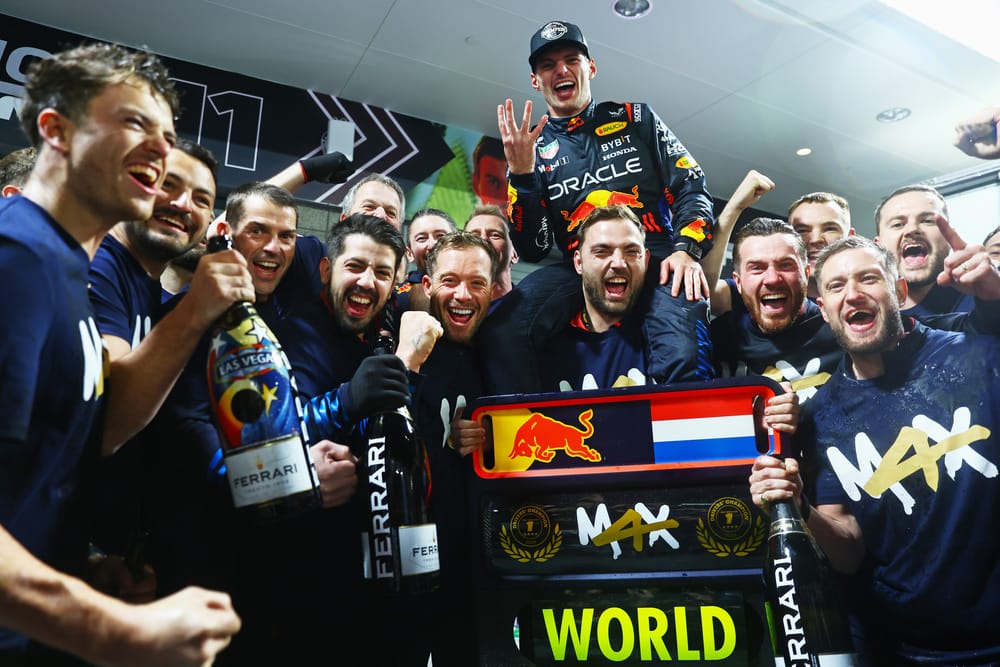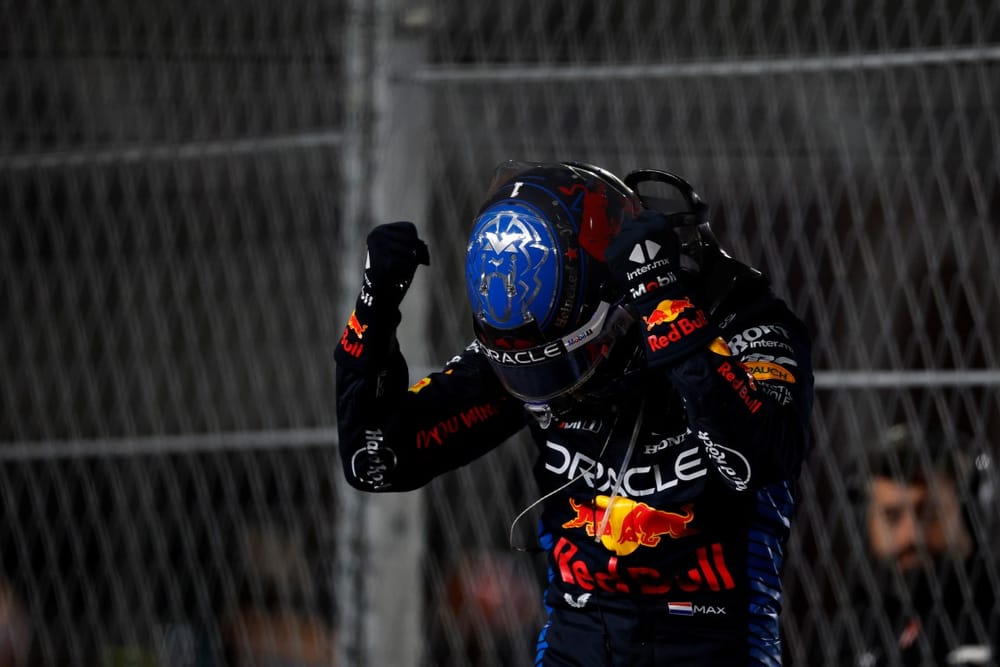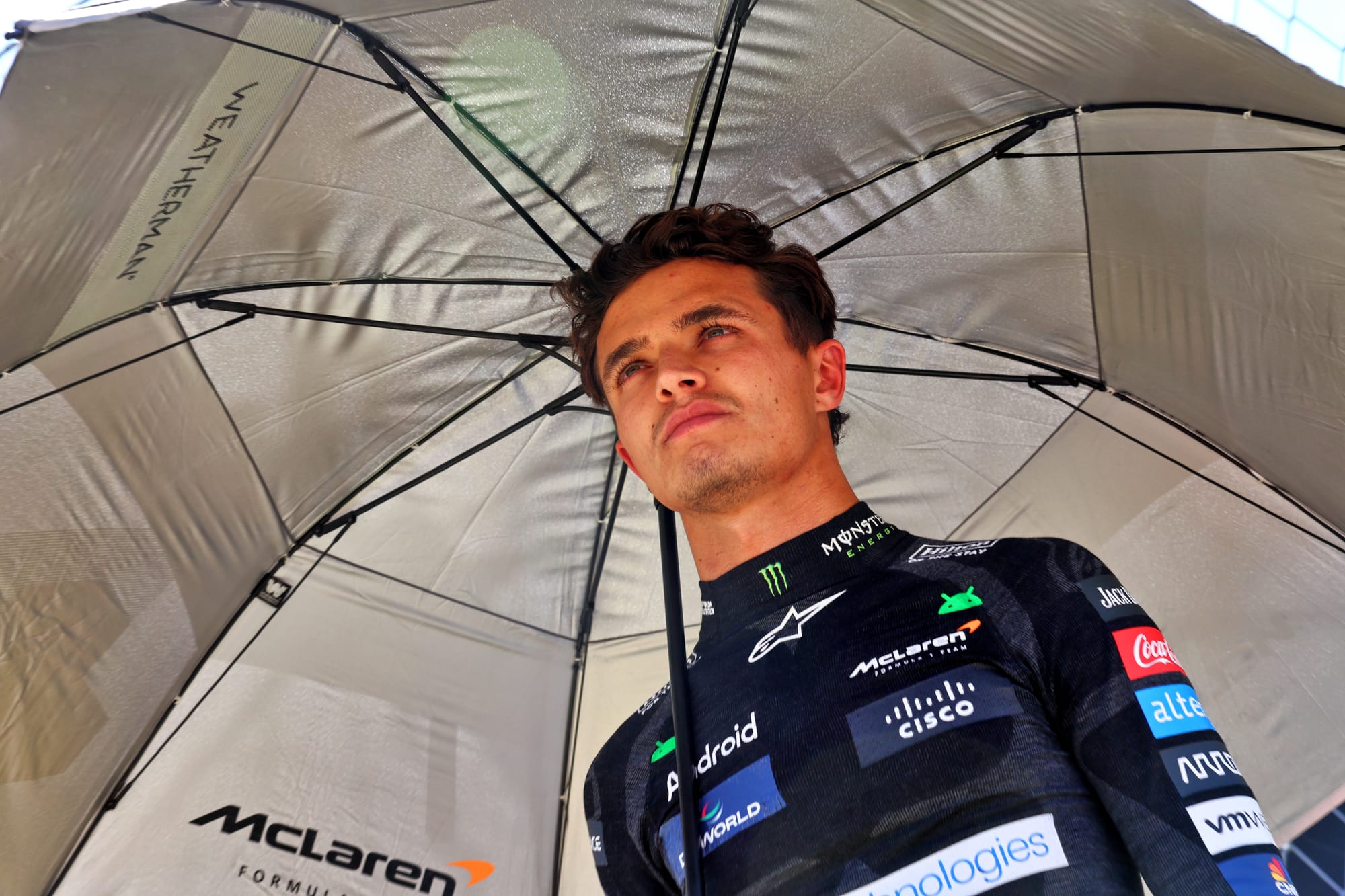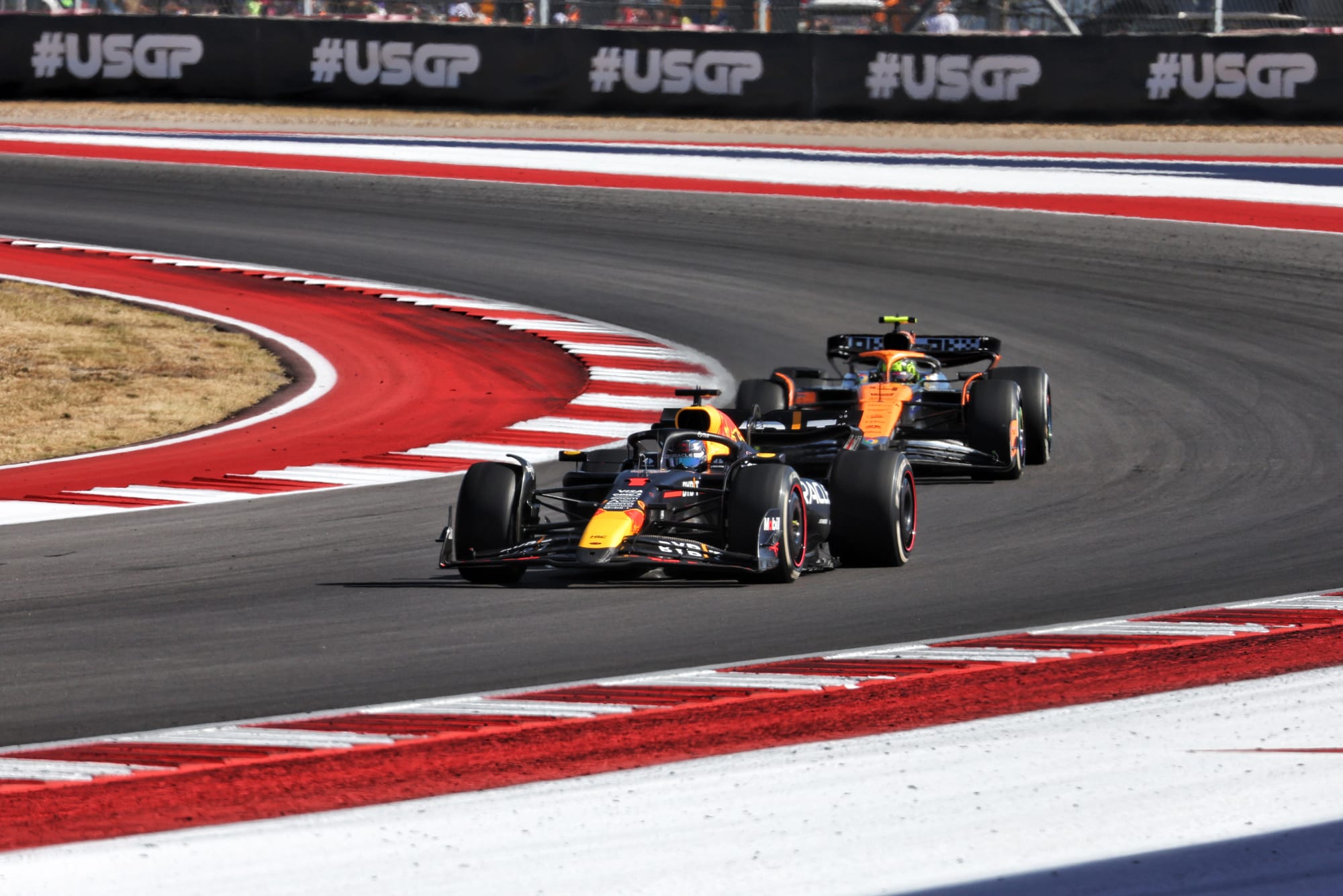Up Next

Max Verstappen is now a four-time Formula 1 world champion and this is a title he and Red Bull won as much as McLaren and Lando Norris lost.
Wrapping things up with two races to go is a luxurious position for Verstappen to be in at the end of another excellent season, but if anything, that comfortable final margin does him a disservice.
While a full-on fight never quite materialised, the threat from McLaren and Norris was real, and what it asked of Verstappen and Red Bull was huge. After two much more straightforward seasons in 2022 and 2023, this title could have been snatched away.
Here's the six things that ultimately made the difference:
1 - McLaren's breakthrough came too late
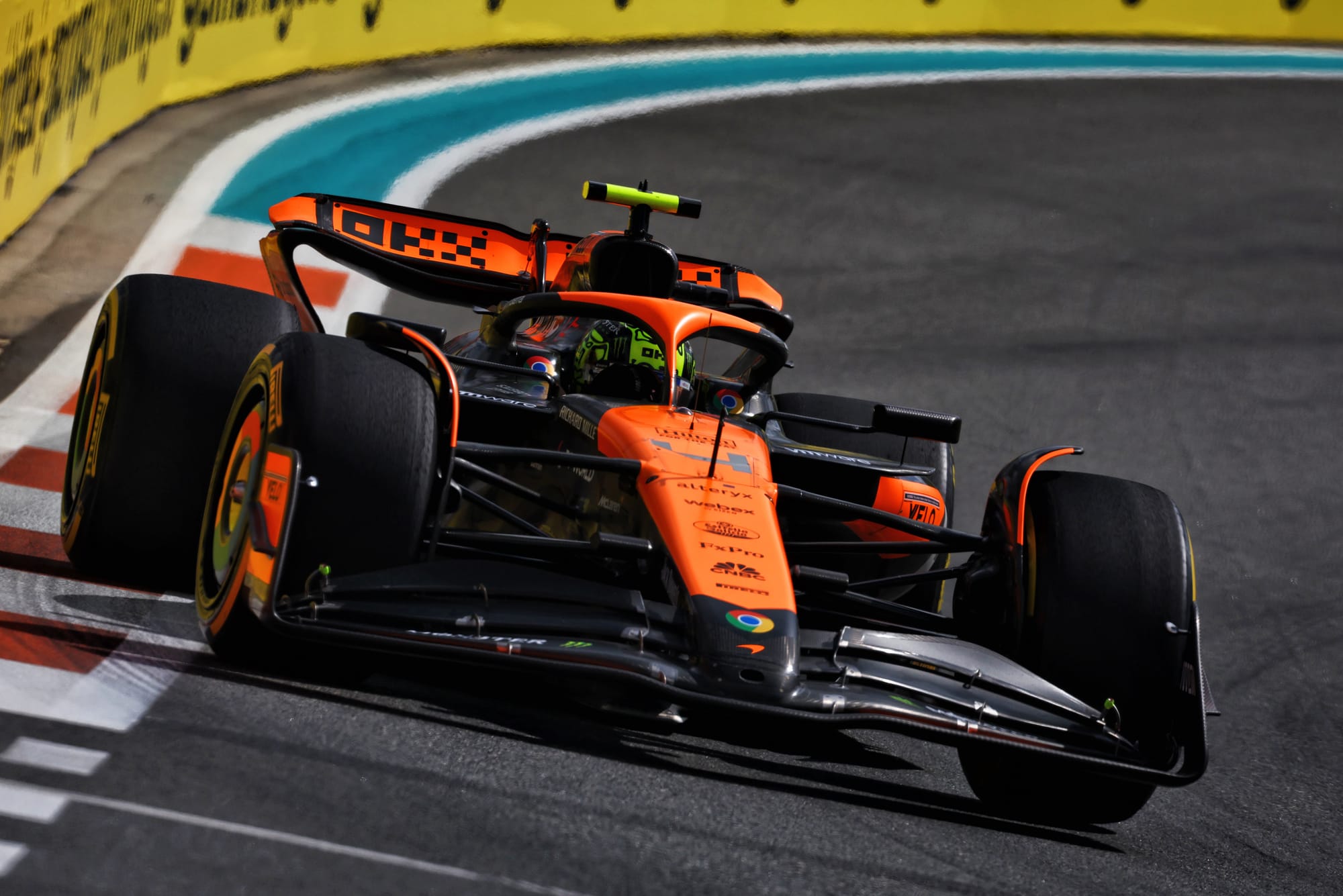
It would have been no surprise to anyone, all the way back in April, if someone had said Verstappen would seal the deal before the season ended.
A dominant Chinese Grand Prix weekend made it four wins and a sprint race victory from the first five events and Verstappen looked on course for potentially an even more convincing title than last year's.
But things have changed a lot. McLaren and Red Bull have been on different trajectories and even though Verstappen can now look at a similar points lead to what he had six months ago, it was not that steady in reality. Ultimately that early spell of races bought Verstappen precious breathing room when things got difficult.
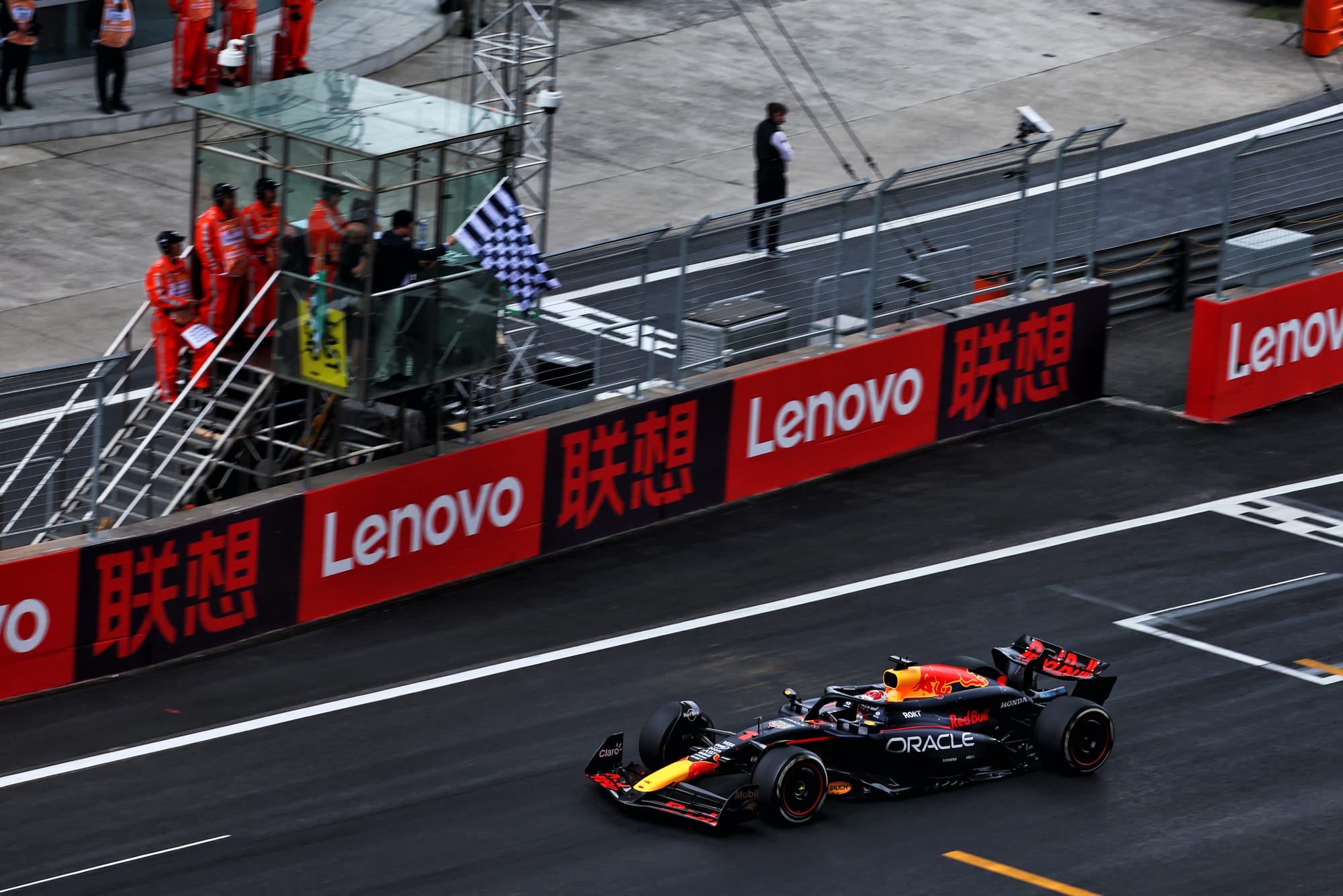
Verstappen was able to make hay while the sun shone early in the year, as Red Bull did exactly what McLaren feared: it cashed in on a dominant 2023 that allowed it to hold back development in the second half of that year, to put a load of effort into its 2024 car, and start this year even further ahead.
"Most of the highs were in the beginning of the season where we were still competitive and winning races," says Verstappen.
"And it seemed like a little bit of a repeat of last year in the beginning."
McLaren, by contrast, had to wait until round six to get everything it wanted onto its 2024 car. And it couldn't have really sped that process up because that Miami upgrade was the sum of a gradual acquisition of knowledge over the winter and even into the start of the season.
"It was lost in the first six races of the year," Norris says of the title. "That's when Max dominated, it's when Red Bull was too far ahead.
"And the points got to a gap which was just too difficult to claw back."
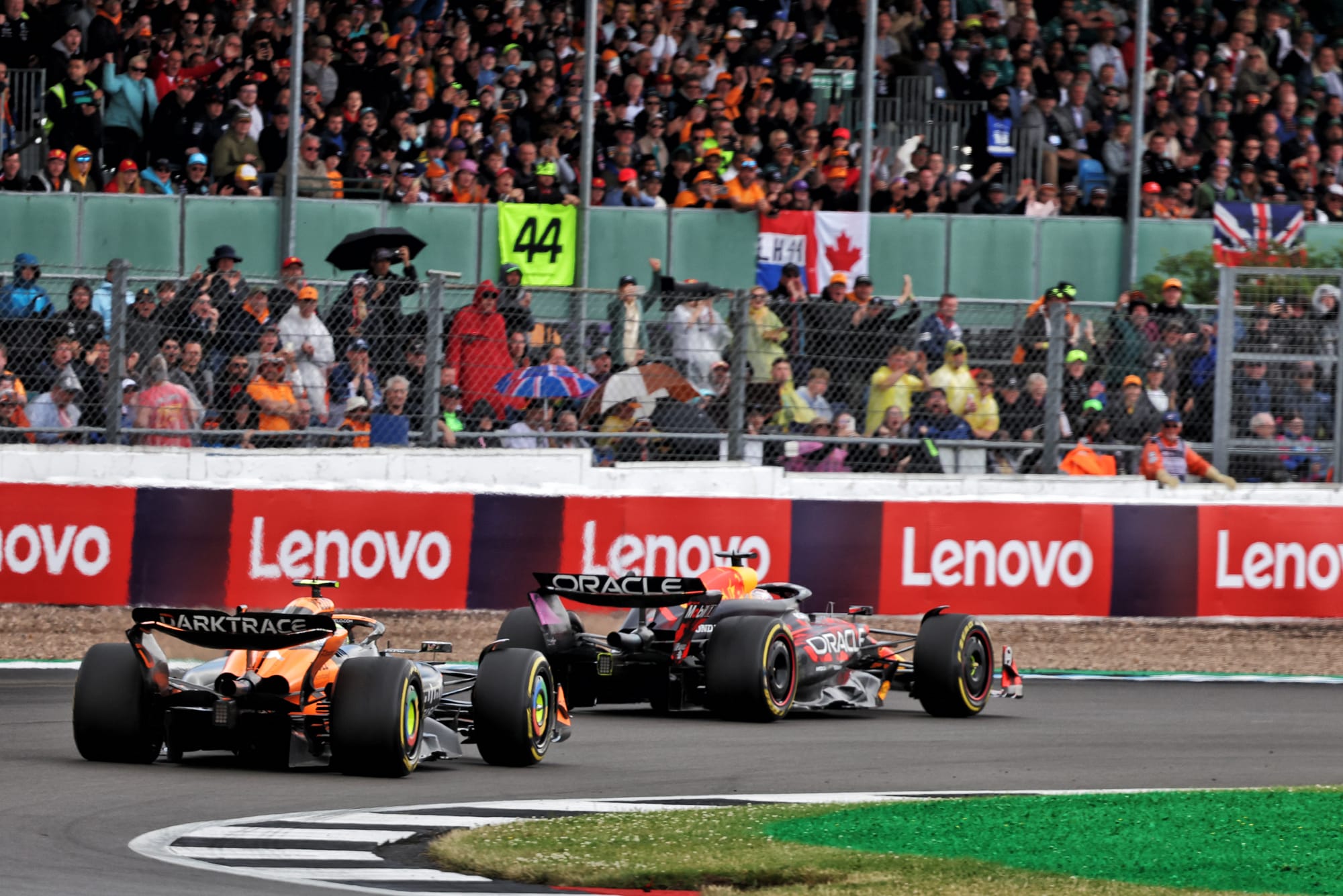
Even when McLaren stepped forward it took a while to start really paying off. It was neck-and-neck with Red Bull through the middle phase of the year, with Ferrari and Mercedes interloping, and it was only just before the summer break that McLaren started to consistently have the best all-round car.
There have been stand-out weekends of McLaren dominance, like Hungary, Zandvoort and Singapore, but it was a massive ask to make up so much ground on a driver of Verstappen's quality even if Norris and McLaren did a perfect job all the time - which they didn't.
2 - McLaren missed too many chances
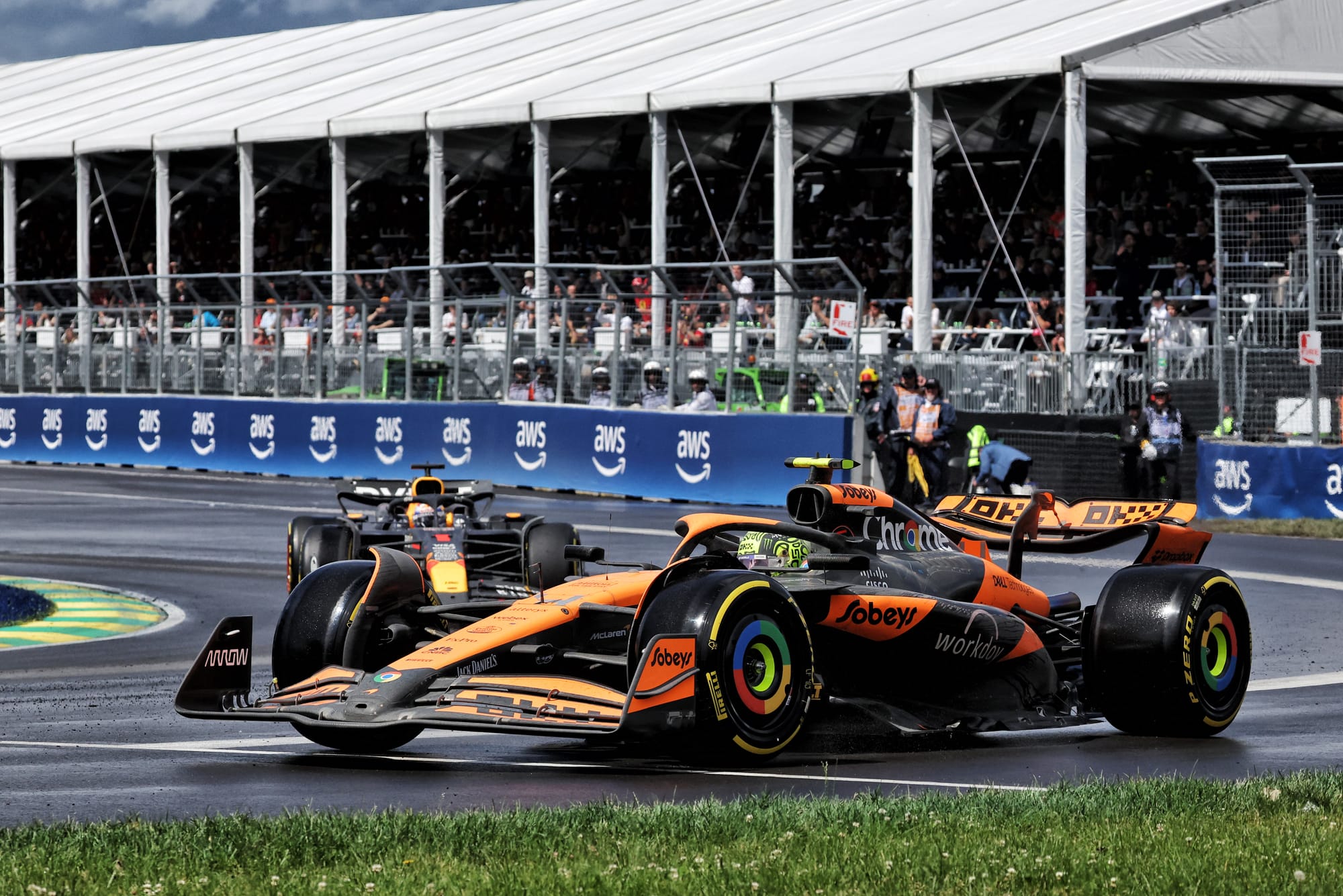
One key difference between Verstappen and Norris is the number of times they didn't win a race they could have.
Verstappen’s strike-rate wasn't perfect but it was very strong. He won five of the eight races he started from pole, retired from one, and would have won another without a safety car. He also opportunistically won three races not from pole: Canada, Spain, and of course Brazil.
By contrast, if there was a common theme to Norris's missed opportunities, it was not converting mega qualifying performances into even holding the lead into the first corner.
Only two of Norris's three race wins so far have been earned from his seven pole positions. That's five obvious missed opportunities right there.
He lost critical ground at the start that stopped him winning in Spain and Hungary, even though Norris feels his starts weren't actually that bad at those races, and was jumped at the start in the wet in Brazil.
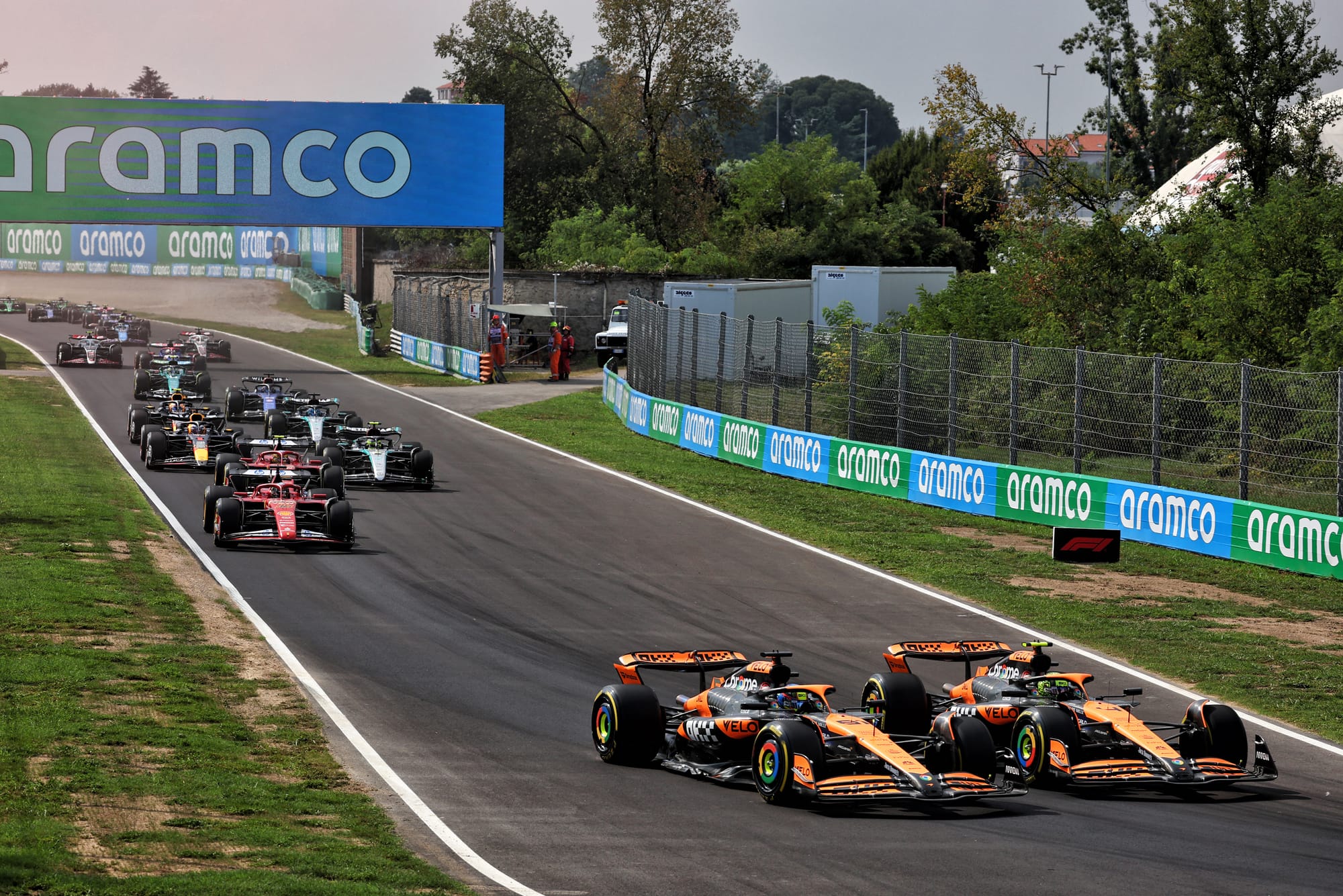
Even when he has held the lead off the line, Norris has often been too soft afterwards. He was outmuscled by team-mate Oscar Piastri on the opening lap in Italy, and too naïve into the first corner in the United States, which gave Verstappen the chance to bully him off-track.
The pole-to-win ratio doesn't even take into account the chances Norris had to win races he didn't start from pole at - like Canada and Britain, two races where strategic hesitations in mixed conditions cost McLaren and Norris dearly.
Other errors have also contributed to dropped points, such a Norris running wide at the first corner at Spa, or a mistake at the restart in Brazil.
McLaren's occasional lack of sharpness at the front, compromised start procedures/mapping/execution, and Norris not always being as ruthless as he needed to be, ultimately exposed the inexperience he and this version of McLaren have in title fights.
Norris admits he "probably wasn't outright ready to go up against Red Bull and Max", at least in the first half of the year. And the same goes for McLaren.
3 - Verstappen's relentlessness
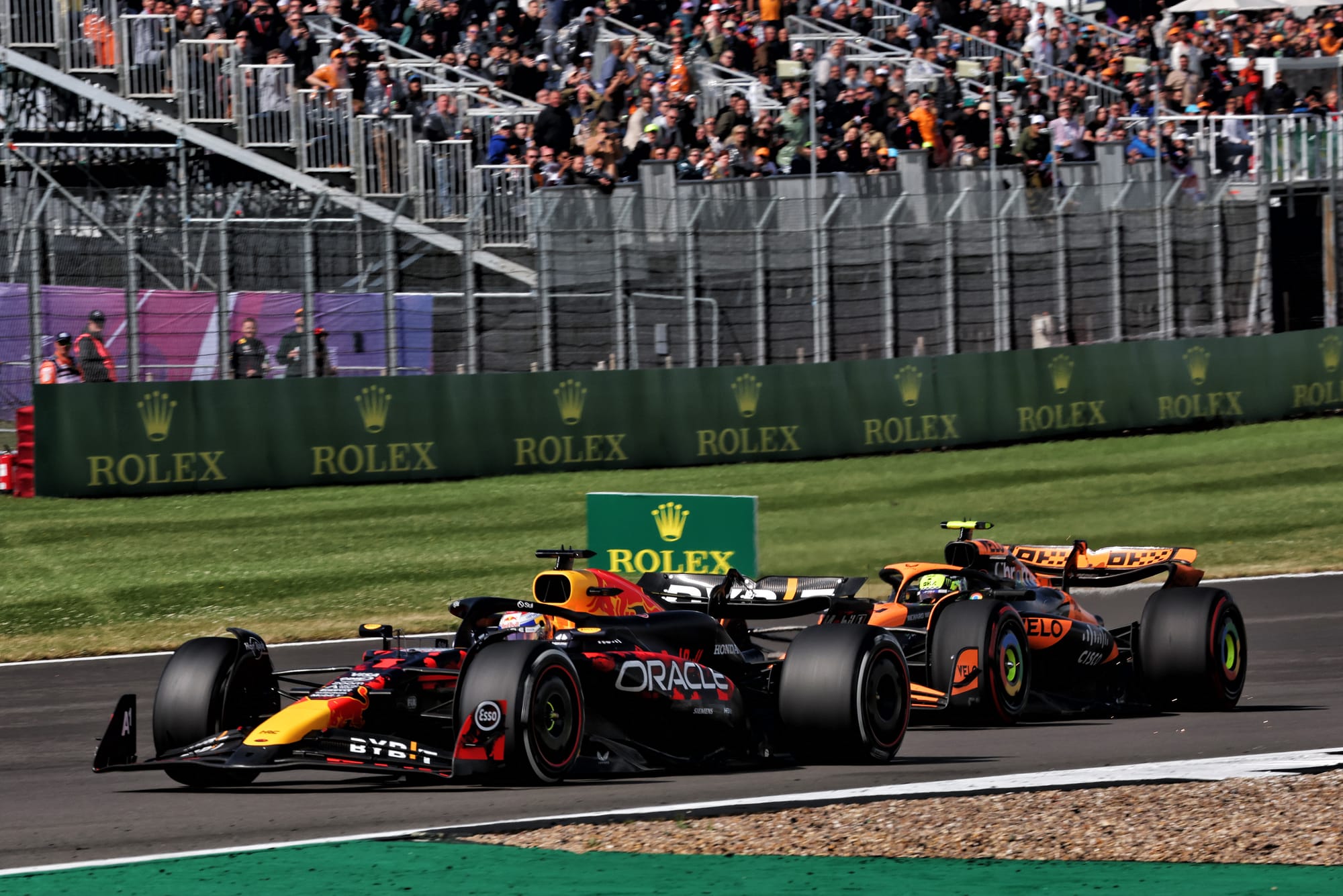
There have been plenty of moments this year where Red Bull and Verstappen have, together or individually, shown exactly why they've been at the top of the tree for the last few seasons.
Red Bull's crisp communication and clear decision-making was vastly superior to McLaren with a sharper reaction to the safety car in Canada, and a better reading of the tyre situation in changing conditions at Silverstone.
It hasn't always been perfect - uncharacteristically slow pitstops and wrong strategy calls have left Verstappen very frustrated at times, most notably in Hungary - but Red Bull has often handled crunch situations perfectly.
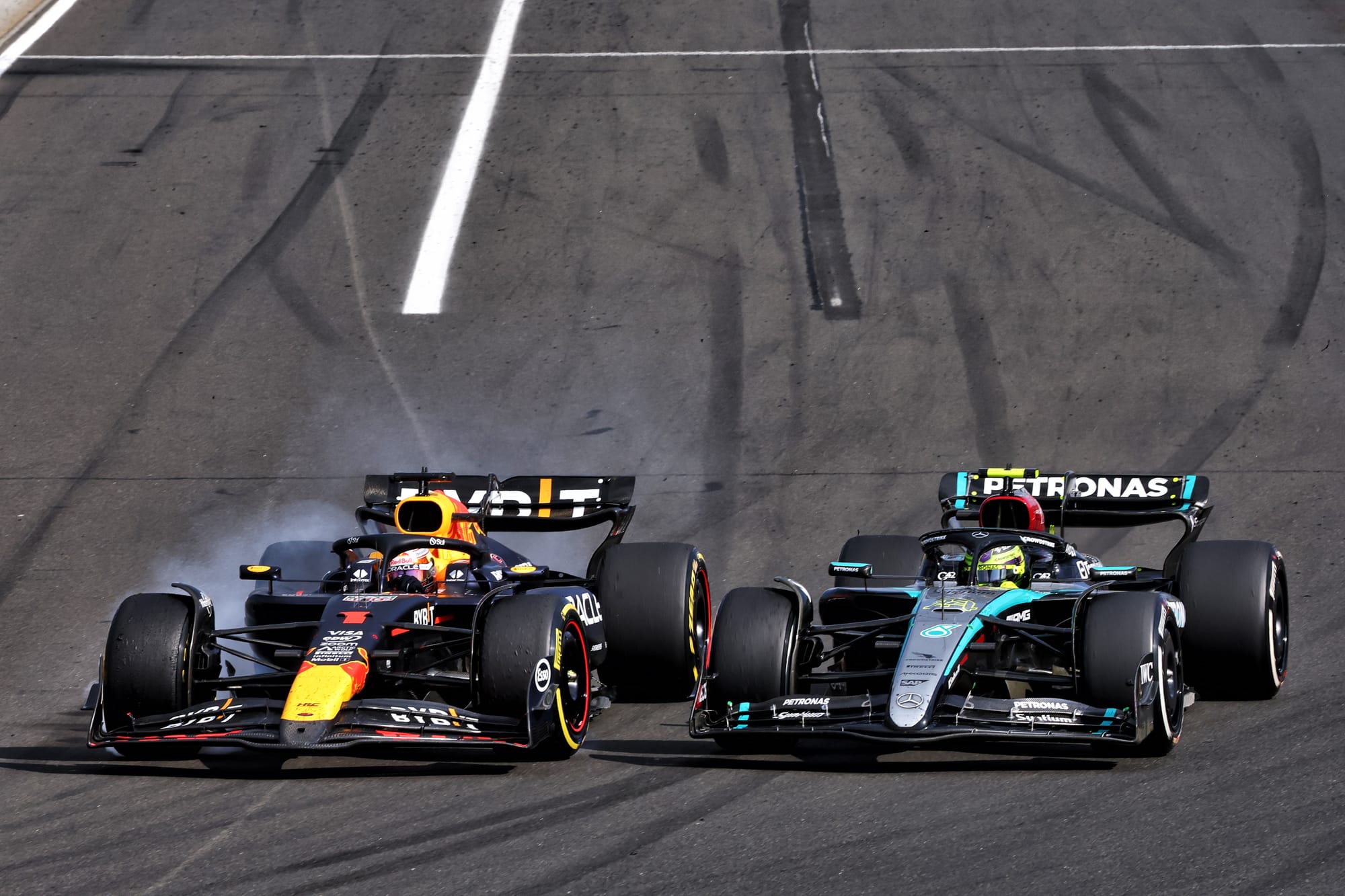
As for Verstappen, while he has dropped points this year, and had the odd slip of control, they are precious exceptions. He has been, in a single word, relentless.
Sometimes that's come in the form of some hugely significant victories, like how he soaked up massive pressure to win at Imola and in Spain, was faultless in Canada, or put in an all-time great performance in the wet in Brazil.
And those Spain/Canada wins in June feel particularly important, given they were directly at Norris's expense. That was a 28-point swing that had a massive impact on Verstappen's championship lead and keeping Norris at arm's length. Had it gone the other way, the second half of the season would have played out against quite a different situation: more pressure on Verstappen and more opportunity for Norris.
But it's not just the wins. Think also of Verstappen's four-and-a-half month victory drought, which still included results like finishing second at Silverstone, fourth at Spa and beating Norris despite starting 11th, and second in Singapore to a dominant Norris to end a really tricky run of races when Red Bull was at its weakest.
"I would say for 70% of the season, we didn't have the fastest car, but actually we still extended our lead," Verstappen says.
"That is definitely something that I'm very proud of."
Verstappen's damage limitation has been excellent this year. Even when Norris was finally starting to make some inroads Verstappen was stemming the tide and has almost always been ready to pounce on mistakes from his would-be rival.
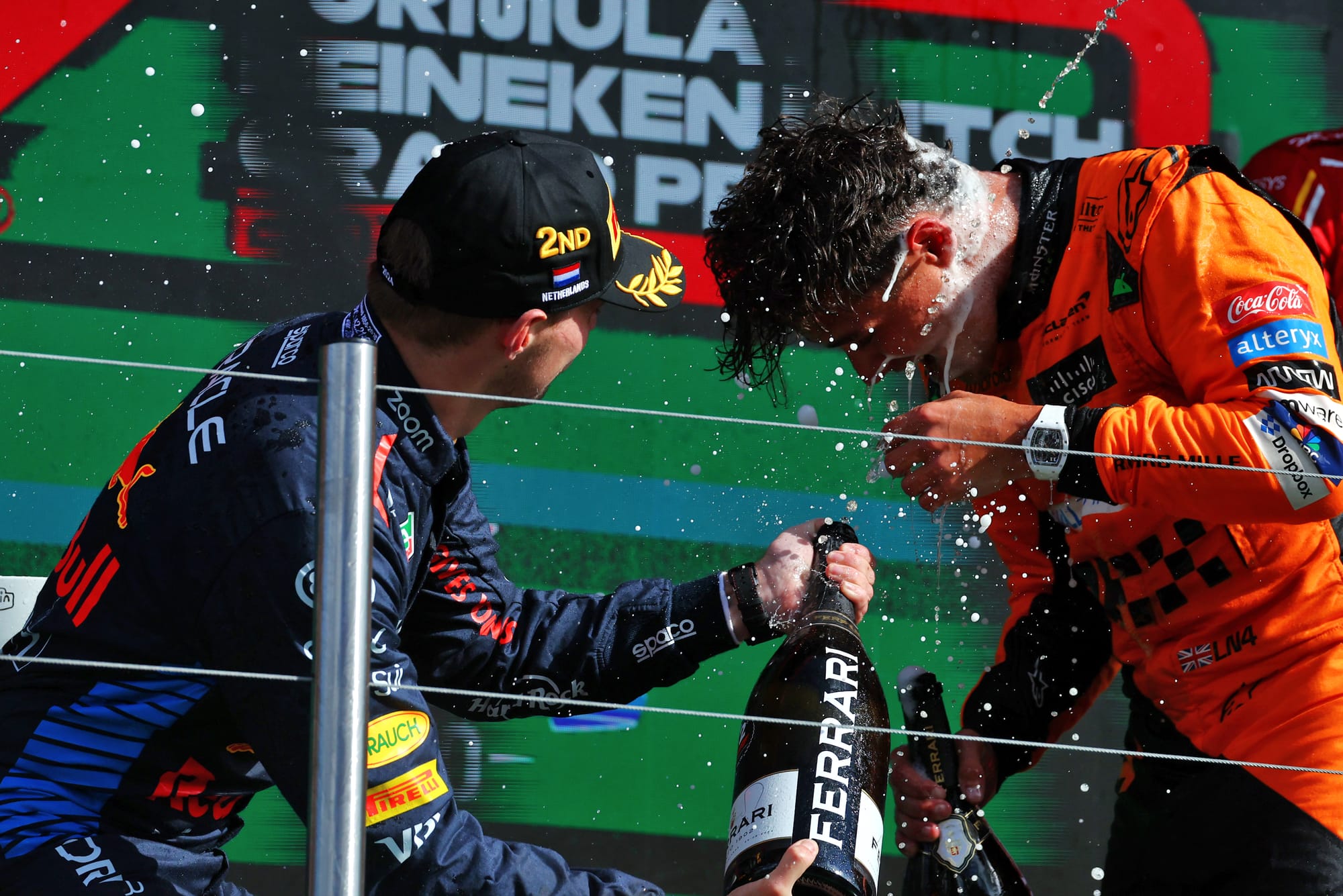
That's something that hasn't be lost on Norris either.
"He's not put a foot wrong, really, the whole year," Norris says.
"That's a strength of his, he has no downsides. He has no negatives. When he's had the quickest car he dominated races, when he's not at the quickest car, he's still been just behind us and almost winning the races anyway.
"He's not had any bad races the whole year. He's just drove as Max has always driven, which is perfectly, and I can't fault him anywhere."
4 - Controversial clashes helped
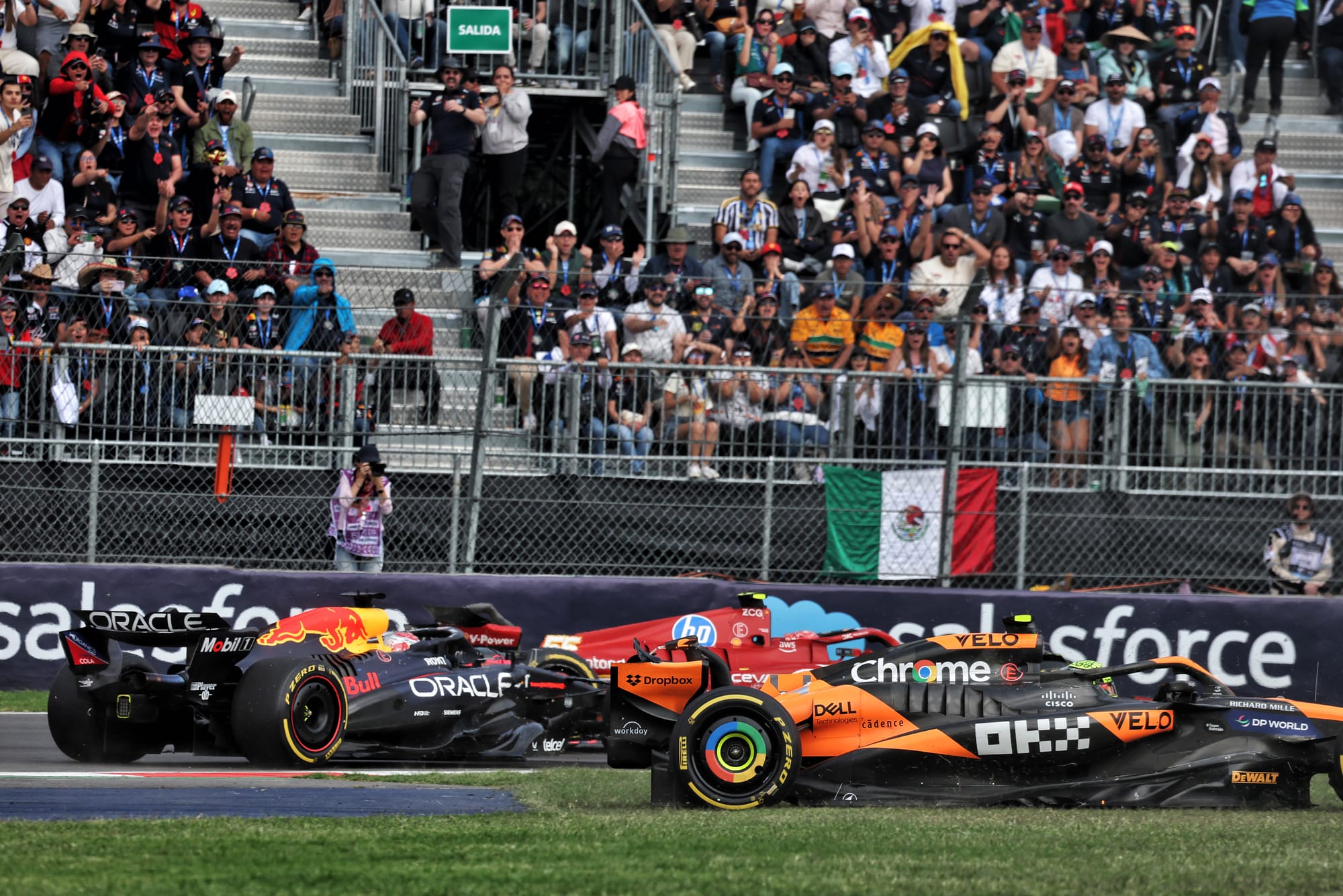
Verstappen's uncompromising approach to racing means whether by accident or design he takes F1's racing rules to the extreme and sometimes crosses the line.
That wins him a lot of fans and a lot of critics. This year, it also earned him a few important points against Norris.
They only collided properly in Austria, where Verstappen looked shaky after losing control of the race at a slow pitstop and was aggressive in his defence. But Norris also misjudged a couple of things in that fight himself. And he lost out more with a DNF, that meant while Verstappen missed a win or at least a podium, he still strengthened his position that day.
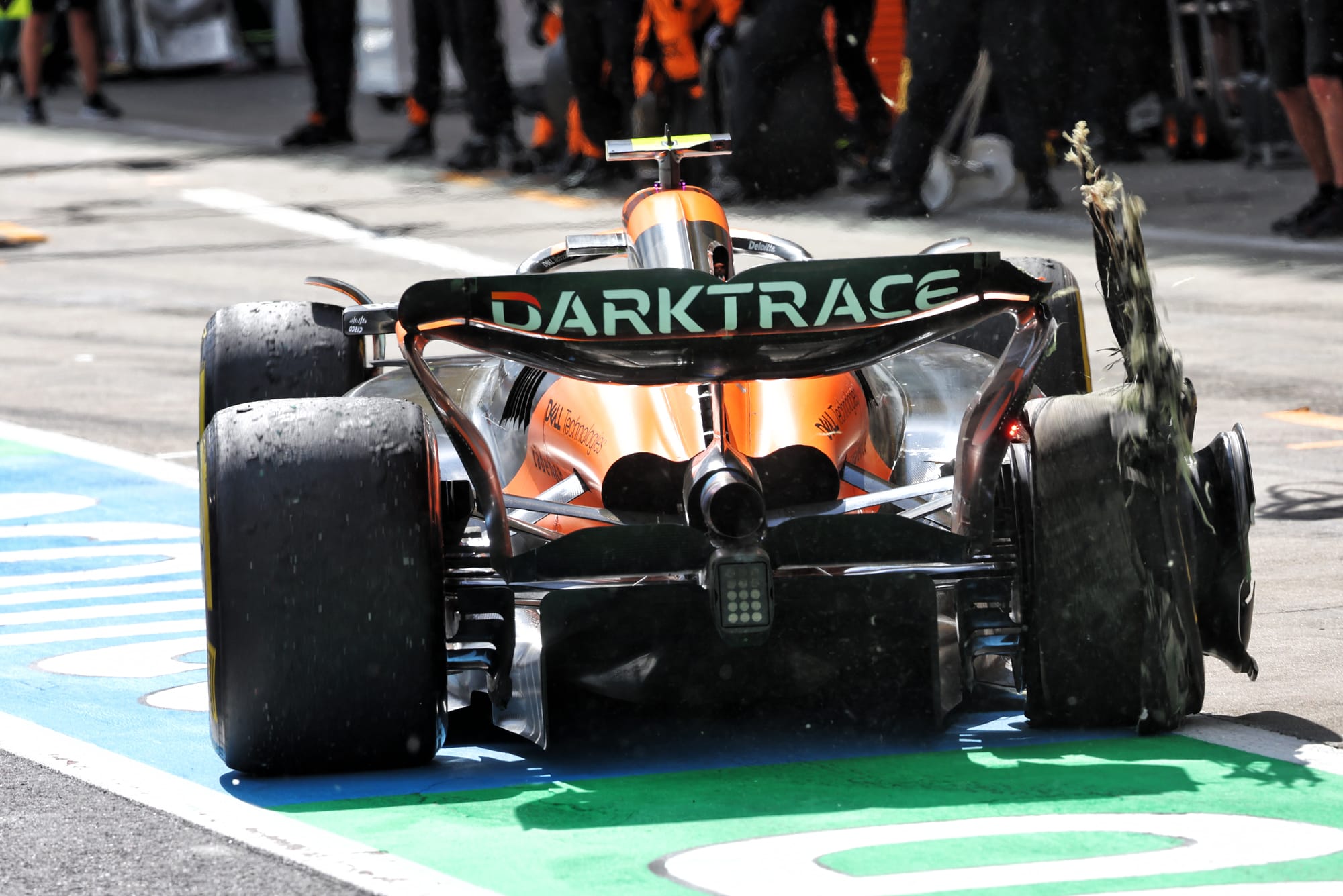
Then there were the controversial wheel-to-wheel flare-ups in the US and Mexico. In Austin, Verstappen forced Norris wide at the first corner with an aggressive, borderline move that Norris shouldn't have left himself vulnerable to.
Later in the race, after excellent defending lap after lap, Verstappen pulled off another borderline move in defence and Norris, who slightly naively kept trying to pass Verstappen around the outside, was the one who got a penalty for overtaking off the track.
Much as some may dislike it, the rules were just about on Verstappen's side. And he extended his lead over Norris again.
And while he did actually cop two penalties for two incidents just a couple of corners apart a week after this, in Mexico, Verstappen still may have been better off for that.
Serving a 20-second time penalty for forcing Norris off and then a never-going-to-work lunge to get back ahead didn't reflect brilliantly on Verstappen, but he didn't care. Especially as the time loss it cost Norris may well have stopped Norris winning.
It's debatable, but if so, that relative points 'gain' was actually worth more than what Verstappen realistically lost through his penalties.
Even if that was a loss for Verstappen, overall, he came out of direct combat with Norris on top more often than not this year. Norris has even admitted he wasn't quite at Verstappen's standard in battle, and that had tangible rewards in terms of points and also intangible benefits like establishing a certain power dynamic in their rivalry.
5 - What team orders really cost
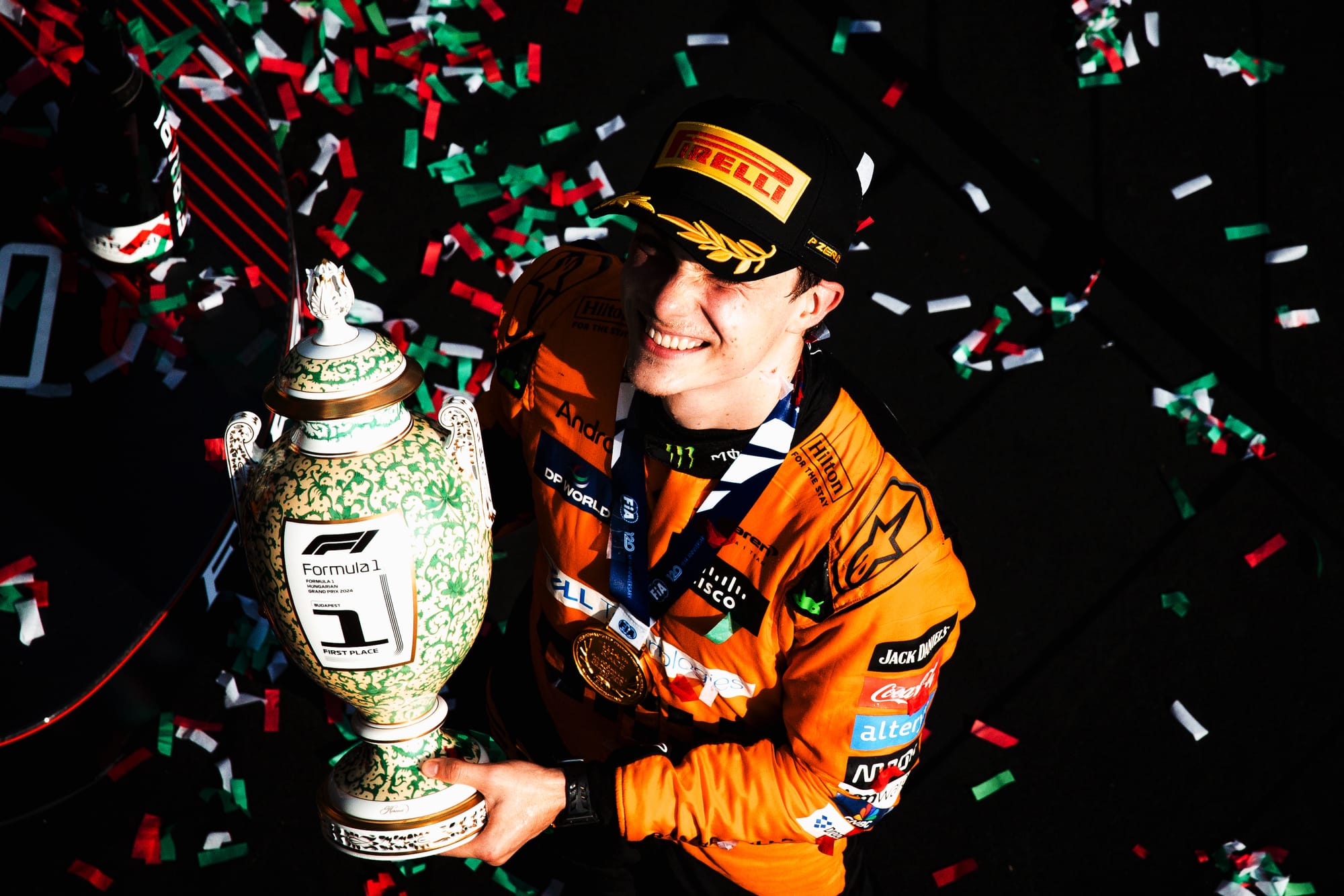
A contentious, although ultimately fairly brief, sub-plot in the title fight was the issue of team orders. But only at McLaren. It was never relevant at Red Bull.
Sergio Perez was a pretty effective rear-gunner for Verstappen early on, finishing second in three of the first four races. But he's not been on the podium since April's Chinese GP and has disappeared entirely from championship relevance, letting Red Bull down in the constructors' contest and being a complete non-factor in Verstappen's bid, unable to take points off Norris.
The minor upside was it meant Verstappen retained Red Bull's entire focus, and when things got tight on individual upgrades like a late-season new floor, it inevitably went to Verstappen to help his cause.
Things were more…complicated at McLaren.
After the very minor matter of the team not moving Piastri aside in the Austria sprint race with the cars second and third, which cost Norris a whole point, the drivers had their first real team orders flashpoint in Hungary.
Piastri robustly passed Norris at the start then had to wait later in the race for Norris to finally cede to a command to let Piastri back past, having inadvertently been moved ahead by McLaren's strategic management of the race.
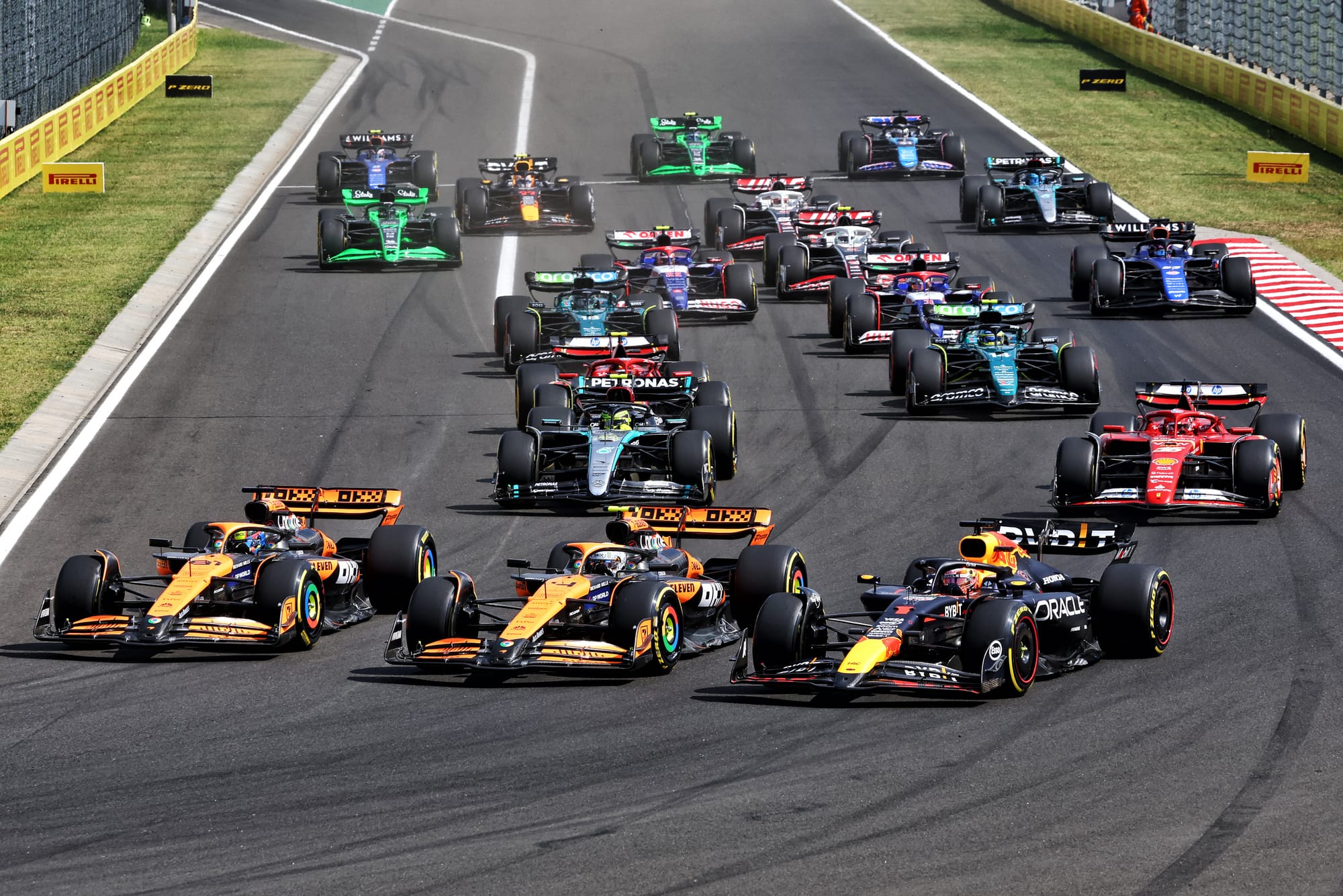
McLaren was criticised for not prioritising Norris and costing him seven points there. Then another forceful but fair Piastri move on Norris followed after the summer break in Italy, a race Piastri was poised to win instead of Norris before McLaren was somehow gazumped by Charles Leclerc's one-stopping Ferrari - and Piastri was then allowed to stay second, with Norris third.
Piastri did eventually get moved into more of a support role, which bought Norris a couple of points in the US when Piastri backed off to avoid Norris losing another place with his time penalty, and a single point in Brazil when Piastri gave him the sprint race win there.
The net cost over that was pretty small: as few as eight points, as many as 15 if you assume Norris could have beaten Leclerc at Monza had he been the McLaren driver who stayed in front.
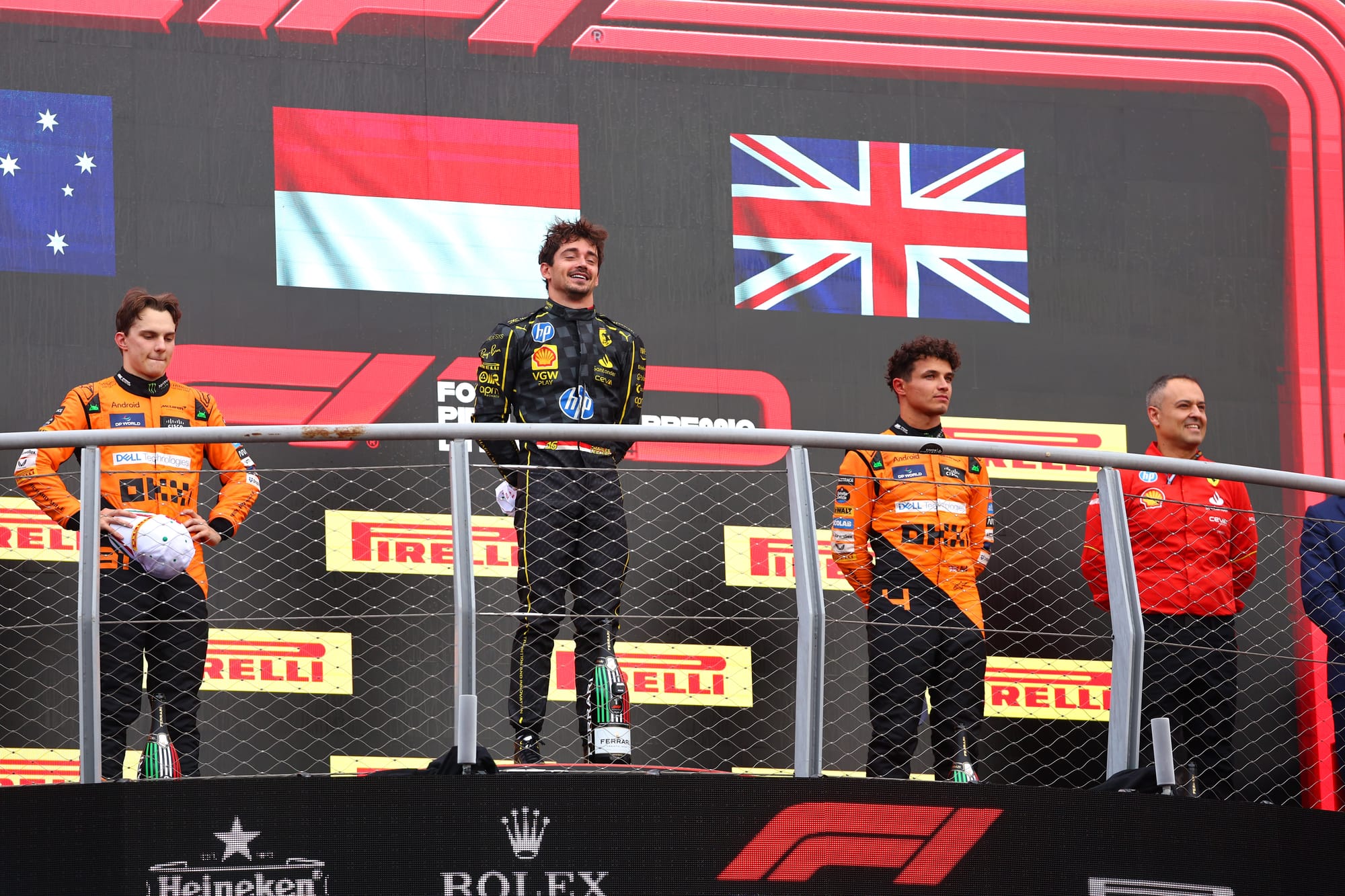
Minor or not, it did influence the situation, and gave McLaren a headache to manage at times instead of being all-in on Norris.
And they are just examples of the cars running together on-track. There were other occasions Piastri beat Norris by a few positions: Saudi Arabia, Monaco, Belgium, Azerbaijan.
These can't count as points McLaren and Piastri directly cost but, purely in terms of numbers, if Piastri didn't exist in these races, or drastic action were taken and he dropped back several places, Norris would have gained a little more on Verstappen here and there.
That's just what happens when a title-fighting driver has a competitive team-mate. And ultimately, Norris had the opportunity to score those points. He just wasn't always quick enough or good enough to beat Piastri.
6 - Red Bull's late flourish
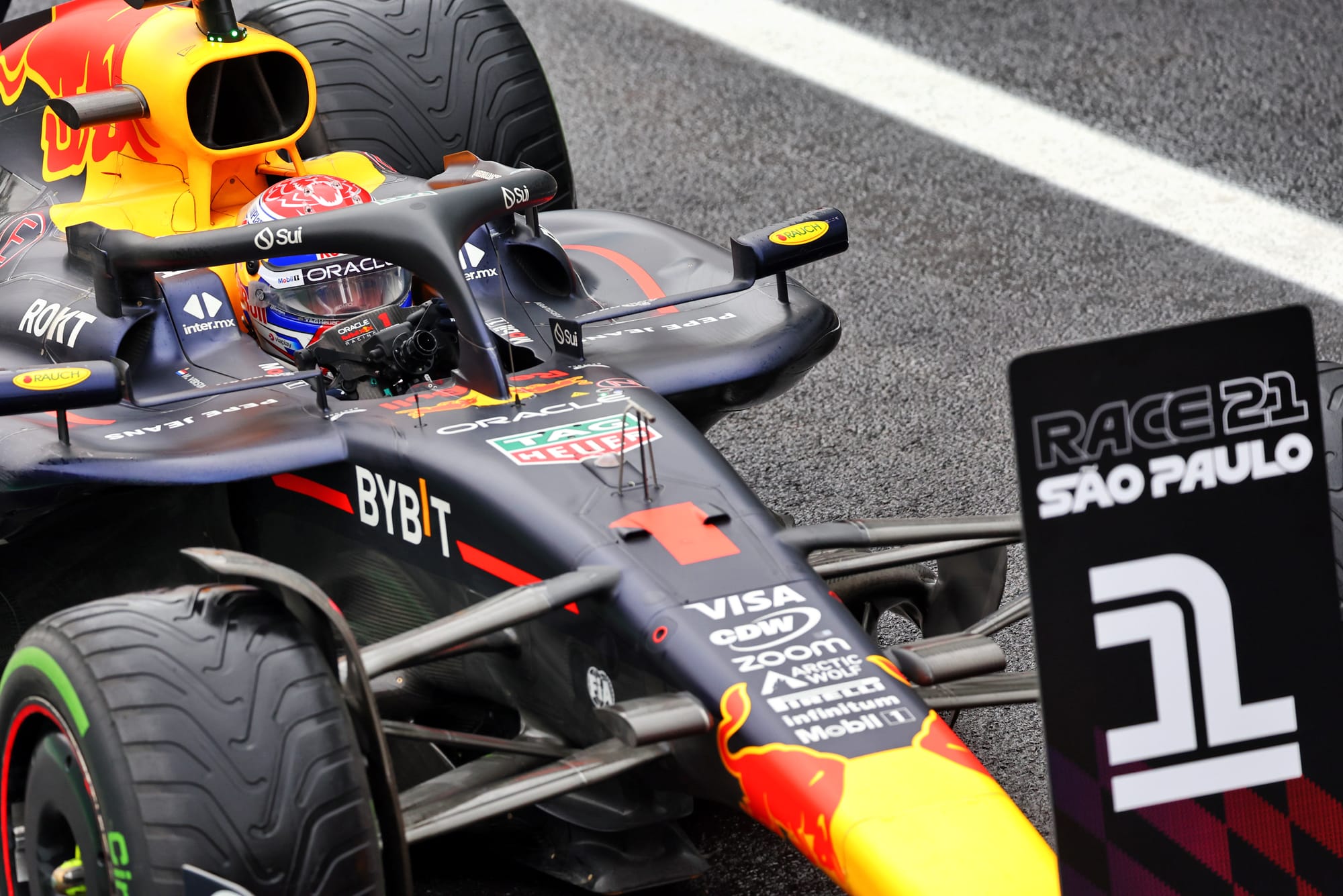
It's undeniable that Red Bull and Verstappen often found themselves on the back foot through the season, but they partially rebounded in the final third of it.
The middle phase of 2024 was definitely Red Bull's weakest. It was also the most valuable as it seemed to gain a greater understanding of its limitations and worked to start correcting them, with its worst weekend of the year at Monza key to that.
A few races later, a new floor at Austin helped pull Red Bull back from a brief spell of only being the fourth-fastest team. And unsurprisingly, Verstappen used that to good effect. Red Bull still didn't have the fastest car anymore but it was more in the ballpark again and Verstappen could at least fight more often.
"At one point, it seemed like we were a little bit lost, but at least now it feels like it's all a bit more normal," Verstappen says.
"Since Austin, we have turned it around a little bit and we're a bit more in that fight again."
It was in the final part of the year that Red Bull also tried to catch various potentially illegal methods rival teams had used to steal a march, including flexi-wings, alleged tyre cooling tricks and abuse of floor plank rules to run lower.
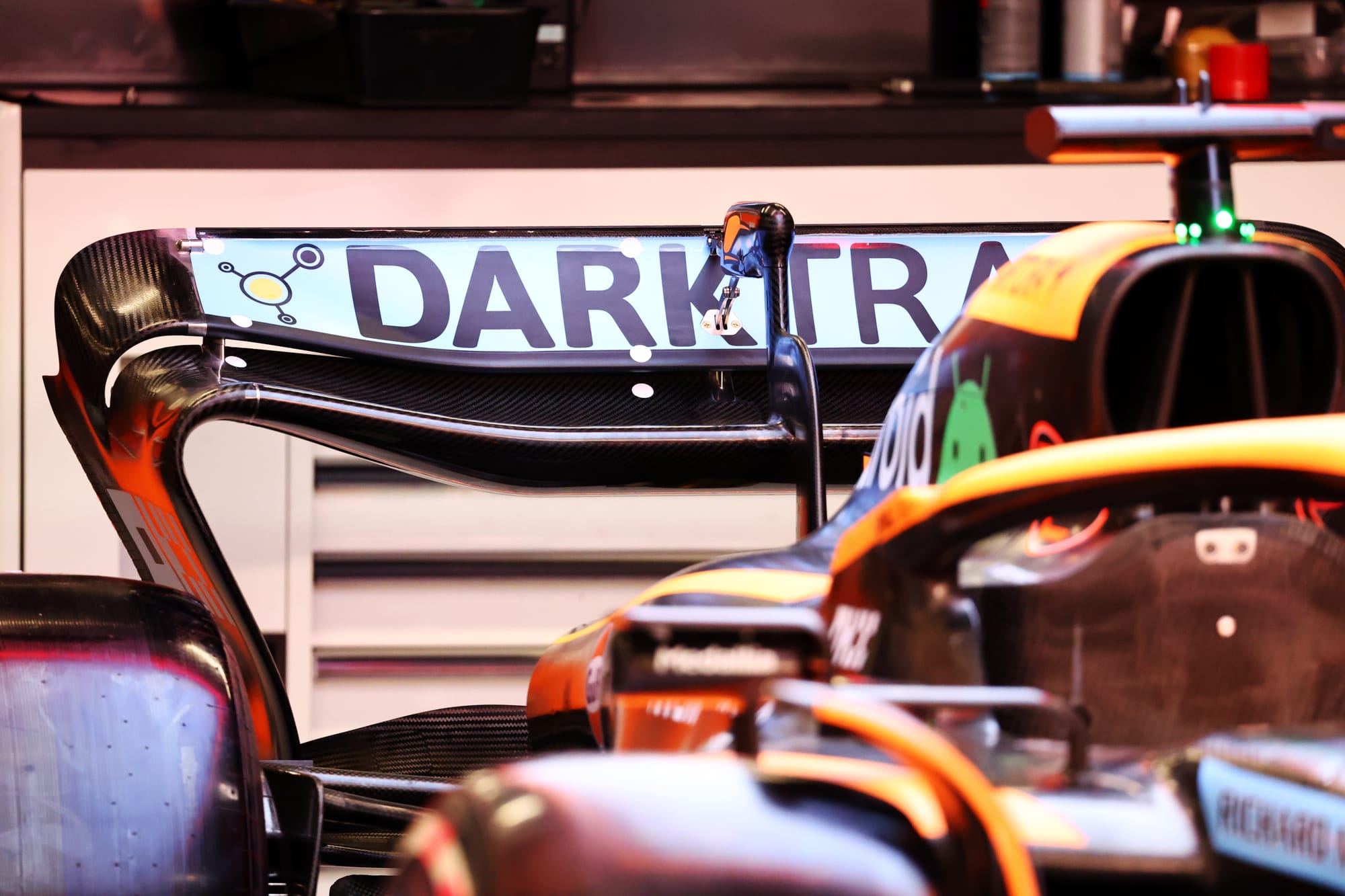
Various matters were reported to the FIA, in what felt like a show to Verstappen that Red Bull was doing all it could to support him as much as anything else. And Red Bull feels it reined in its main rivals a little bit by doing so, although only a few people really know where the improved relative performance of the Red Bull can be attributed.
Such was the nature of this season, though, that Verstappen couldn't be confident Red Bull's best recovery efforts would be enough. Until Brazil. Although Verstappen didn't officially seal the championship, he effectively won it there with a mega drive from the back of the grid in the wet, to score a massive points swing against Norris and put himself on the brink of glory.
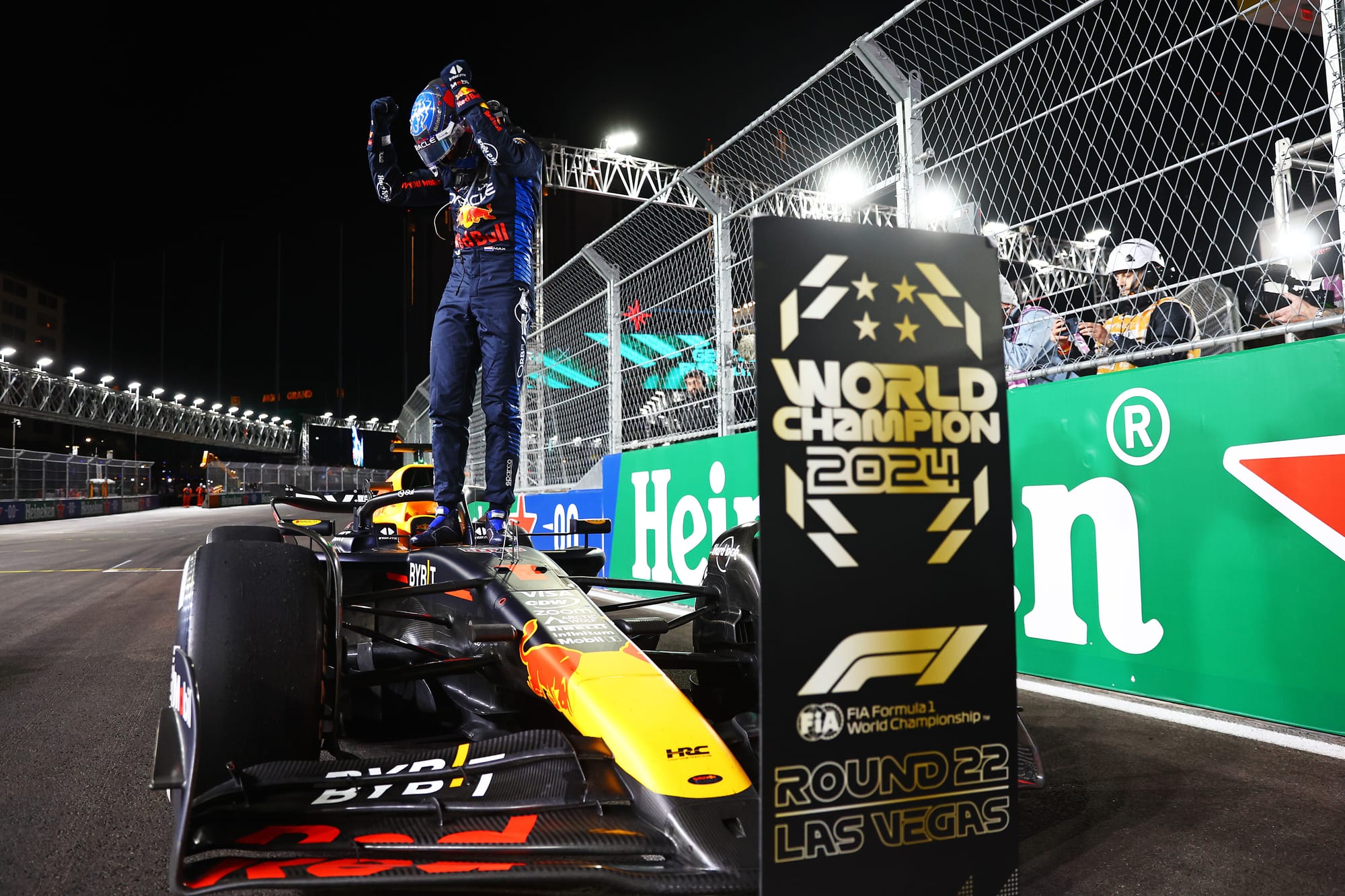
It was only right that Verstappen has been afforded that kind of flourish after a season of this quality. And at the same time, it is probably fitting that the championship was actually sealed with a gritty, tenacious performance miles ahead of his team-mate in Vegas.
Across those two races, we saw very different examples of why Red Bull's newly crowned world champion is such a deserving one.


